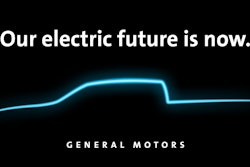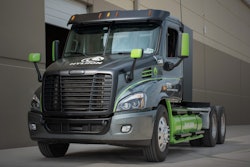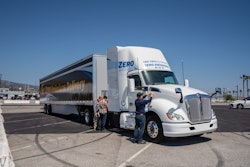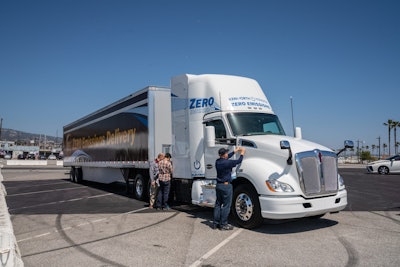
Power management company Eaton announced that it is a key contributor and supporter of the National Zero-Emission Truck (ZET) Coalition’s newly issued priority federal recommendations.
The ZET Coalition is calling for the establishment of a national point-of-sale incentive program to drive the production of zero-emission medium- and heavy-duty vehicles including clean trucks and buses, in the United States and recommends federal funding of more than $2 billion for point-of-sale incentives to jumpstart zero-emission truck production during the current economic downturn.
The coalition is organized by the clean transportation industry group CALSTART which Eaton joined in 2005. Eaton reports that it partnered with CALSTART to provide the heavy-duty truck market with a suite of emission-reducing and electric vehicle technologies.
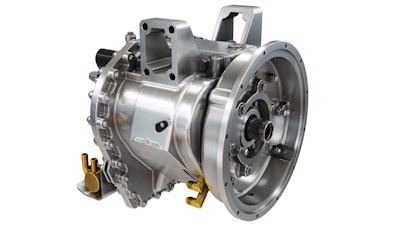 Eaton continues to step up its offerings of zero-emission products including its new 4-speed transmission for heavy-duty electric commercial vehicles.
Eaton continues to step up its offerings of zero-emission products including its new 4-speed transmission for heavy-duty electric commercial vehicles.Eaton also currently participates in the U.S. Department of Energy’s (DOE) SuperTruck program, a partnership between the DOE, truck manufacturers and equipment suppliers seeking to improve freight efficiency more than 100 percent over an equivalent 2009 model and improve engine brake thermal efficiency performance by 55 percent.
Eaton supplies technologies to OEM SuperTruck teams that are designed to improve fuel economy and reduce emissions, including a transmission that achieves additional fuel savings by enabling engine-off coasting and waste heat recovery; a 48-volt mild hybrid electrically regenerative accessory drive that charges the vehicle’s batteries, runs the air conditioner and other accessories, and replaces the alternator in linehaul commercial vehicles; and exhaust gas recirculation controllers that enable simultaneous fuel and emissions reductions. Eaton technology also supports hydrogen fuel cell systems with its Twin Vortices Series system which is designed to provide accurate and fast air control to enable rapid fuel cell voltage control.
Eaton’s eMobility business, launched in 2018, also offers a growing portfolio of components for electric vehicles—including EV transmissions for both medium- and heavy-duty vehicles and FLEX power distribution units (PDUs).
The ZET Coalition reports that medium- and heavy-duty vehicles contribute approximately 60 percent of air pollution in major metropolitan areas and account for nearly 22 percent of energy use in the U.S. transportation sector.
According to the coalition, federal investments would enable the production of tens of thousands of zero-emission commercial vehicles by 2025, as well as support domestic manufacturing jobs, promote technology leadership and U.S. competitiveness, and improve air quality in communities most impacted by heavy-duty vehicle emissions.


